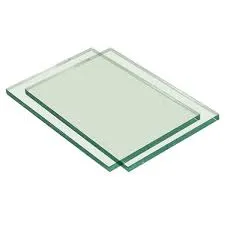The Market Dynamics of Tempered Window Glass Prices
Tempered window glass, known for its strength and safety features, has garnered significant attention in the construction and automotive industries. As a type of safety glass that has been heat-treated to withstand higher levels of stress, tempered glass has become a preferred choice for windows in buildings, vehicles, and various architectural applications. This article delves into the factors influencing the prices of tempered window glass and offers insights into current market trends.
Understanding Tempered Window Glass
Tempered glass is produced through a process of extreme heating and rapid cooling, which increases its durability compared to standard glass. This process enables it to endure high impact and thermal stress, reducing the risk of breakage. When tempered glass does shatter, it breaks into small, blunt pieces, minimizing the risk of injury. These attributes have made tempered glass a staple in modern design and construction.
Factors Influencing Prices
1. Raw Material Costs The primary materials used in the production of tempered glass include silica sand, soda ash, and limestone. Fluctuations in the prices of these raw materials can have a direct impact on the cost of tempered glass. For instance, a surge in silica sand prices due to mining restrictions or environmental concerns could lead to increased production costs, which manufacturers often pass on to consumers.
2. Manufacturing Processes The cost of energy required for the heating and cooling processes in tempered glass production also significantly affects pricing. In periods of high energy costs, manufacturers may raise prices to cover additional expenses. Efficient manufacturing techniques and technological advancements can help reduce costs, thus influencing market prices.
3. Demand and Supply The demand for tempered window glass predominantly comes from the construction and automotive sectors. As urbanization accelerates and infrastructure projects increase globally, demand for tempered glass is expected to rise. Conversely, supply chain issues such as material shortages or production delays can reduce availability, causing prices to spike. During economic downturns, demand may decrease, leading to price stabilization or reductions.
tempered window glass price
4. Regulations and Standards Safety regulations play a crucial role in the prices of tempered glass. Stricter building codes and safety standards can drive manufacturers to invest in higher-quality materials or advanced production techniques, which, in turn, can lead to increased prices. Compliance with environmental regulations may also influence costs, as manufacturers are often required to implement more sustainable practices in their production processes.
5. Market Competition Competition among suppliers and manufacturers can also affect prices. In regions where multiple companies produce tempered window glass, competitive pricing can lead to lower costs for consumers. However, in markets where a few key players dominate, prices may be higher due to reduced competition.
Current Trends in the Market
As of late 2023, the tempered window glass market has shown signs of resilience despite global economic challenges. The rise of green building initiatives has increased the demand for energy-efficient glass, including tempered glass with low emissivity and solar control properties. This trend is particularly pronounced in regions focusing on sustainability, as builders and architects opt for materials that contribute to energy efficiency.
Moreover, the automotive industry is witnessing an increase in the use of tempered glass in vehicle designs, especially with the growing emphasis on vehicle safety features. As manufacturers invest in new technologies and designs, the demand for high-quality tempered glass is expected to remain robust.
Conclusion
The price of tempered window glass is influenced by various factors, including raw material costs, energy expenses, market demand and supply, regulations, and competitive dynamics. As global trends shift towards sustainability and safety, the market for tempered glass is likely to evolve, presenting both challenges and opportunities for manufacturers and consumers alike. Understanding these dynamics is essential for stakeholders in the glass manufacturing industry as they navigate this complex and ever-changing market landscape.
As we move forward, keeping an eye on these factors will be crucial for predicting price movements and ensuring the optimal selection and use of tempered window glass in future projects.
 Afrikaans
Afrikaans  Albanian
Albanian  Amharic
Amharic  Arabic
Arabic  Armenian
Armenian  Azerbaijani
Azerbaijani  Basque
Basque  Belarusian
Belarusian  Bengali
Bengali  Bosnian
Bosnian  Bulgarian
Bulgarian  Catalan
Catalan  Cebuano
Cebuano  Corsican
Corsican  Croatian
Croatian  Czech
Czech  Danish
Danish  Dutch
Dutch  English
English  Esperanto
Esperanto  Estonian
Estonian  Finnish
Finnish  French
French  Frisian
Frisian  Galician
Galician  Georgian
Georgian  German
German  Greek
Greek  Gujarati
Gujarati  Haitian Creole
Haitian Creole  hausa
hausa  hawaiian
hawaiian  Hebrew
Hebrew  Hindi
Hindi  Miao
Miao  Hungarian
Hungarian  Icelandic
Icelandic  igbo
igbo  Indonesian
Indonesian  irish
irish  Italian
Italian  Japanese
Japanese  Javanese
Javanese  Kannada
Kannada  kazakh
kazakh  Khmer
Khmer  Rwandese
Rwandese  Korean
Korean  Kurdish
Kurdish  Kyrgyz
Kyrgyz  Lao
Lao  Latin
Latin  Latvian
Latvian  Lithuanian
Lithuanian  Luxembourgish
Luxembourgish  Macedonian
Macedonian  Malgashi
Malgashi  Malay
Malay  Malayalam
Malayalam  Maltese
Maltese  Maori
Maori  Marathi
Marathi  Mongolian
Mongolian  Myanmar
Myanmar  Nepali
Nepali  Norwegian
Norwegian  Norwegian
Norwegian  Occitan
Occitan  Pashto
Pashto  Persian
Persian  Polish
Polish  Portuguese
Portuguese  Punjabi
Punjabi  Romanian
Romanian  Russian
Russian  Samoan
Samoan  Scottish Gaelic
Scottish Gaelic  Serbian
Serbian  Sesotho
Sesotho  Shona
Shona  Sindhi
Sindhi  Sinhala
Sinhala  Slovak
Slovak  Slovenian
Slovenian  Somali
Somali  Spanish
Spanish  Sundanese
Sundanese  Swahili
Swahili  Swedish
Swedish  Tagalog
Tagalog  Tajik
Tajik  Tamil
Tamil  Tatar
Tatar  Telugu
Telugu  Thai
Thai  Turkish
Turkish  Turkmen
Turkmen  Ukrainian
Ukrainian  Urdu
Urdu  Uighur
Uighur  Uzbek
Uzbek  Vietnamese
Vietnamese  Welsh
Welsh  Bantu
Bantu  Yiddish
Yiddish  Yoruba
Yoruba  Zulu
Zulu 

